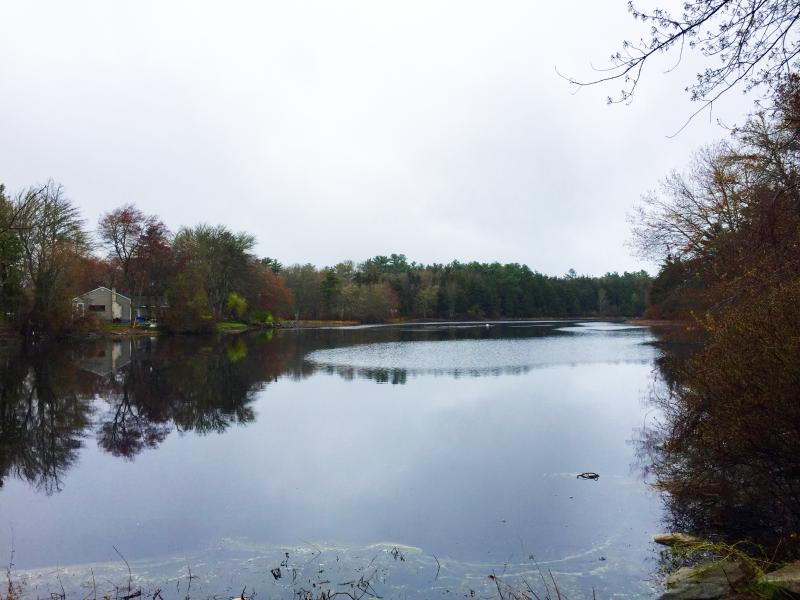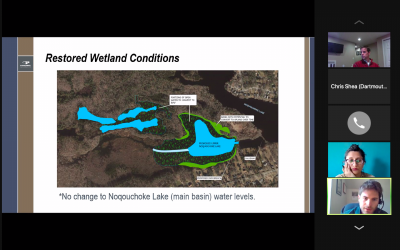Residents voice concerns over possible upper dam removal
“Egregious and unacceptable.” These were just a few of the choice words Dartmouth residents used to describe plans to potentially breach the upper dam at Lake Noquochoke during an informal meeting with the Massachusetts Environmental Policy Act Office.
The lake and the land around it are situated entirely within the town of Dartmouth, although the city of Fall River owns the water rights to the lake as well as both the upper and lower dams associated with it.
According to engineer Allen Orsi, the City of Fall River currently plans to remove the upper dam located off Highland Avenue to avoid flooding during a “500 year storm event.”
To achieve this, he said crews would excavate an opening through an embankment in the dam and that any changes would lower the upper pond by 3.5 to 4 feet so it’s at the same elevation as the adjacent smaller pond.
“The approach is relatively simple,” Orsi said, adding that the elevation of the larger lake “is not going to change.”
Environmental Affairs Coordinator Marc Garrett said that while he understands why the city of Fall River made the proposal, Dartmouth’s Conservation Commission is “very concerned” with the potential project.
He added that commission members felt that the environmental notification form that was submitted was “deficient in several ways” when it came to direct and indirect impacts of the breach.
“There needs to be an upper watershed analysis to determine what the real hydrogeology is going to be if the breach takes place,” Garrett said.
Those who live near the lake also expressed their discontent with the proposal. Many wondered how breaching the dam could impact their real estate values.
Since that does not fall under MEPA jurisdiction, environmental scientist Seaver Anderson said officials have not done any real estate assessments.
“It might increase, it might decrease,” he added.
In May 2019, the city discussed breaching the lower dam, which is in need of costly maintenance work and is no longer required, as the mills for which the water was used are long since gone.
Breaching the lower dam would drain the lake and restore the area to wetlands.
Administrator of Community Utilities for Fall River Paul Ferland said that breaching the upper dam “has nothing to do with the breaching of the lower dam” and that talks are still ongoing with the town of Dartmouth regarding various options for rehabilitating the lower dam.
Resident Nick Pleiss said that his primary concern was with disrupting any endangered animals that currently live near the lake, noting that bald eagles are known to hunt on the lake and has even spotted salamanders in the area.
“This could very well be a salamander breeding ground, which is a major thing,” he said.
Anderson said that the city has met with the MassWildlife's Natural Heritage & Endangered Species Program on the habitats, adding that a breach would likely revert the lake back to its natural state.
“It isn’t natural, but it’s been natural to these animals for how many years that it’s been there ” Pleiss said. “Animals have strived there for years and years, and any new impact is going to affect them.”
According to MEPA analyst Purvi Patel, the city has withdrawn its current proposal in order to conduct more site visits and get more comments from officials and residents.
She said she expects the applicant to resubmit in three to six months.
















